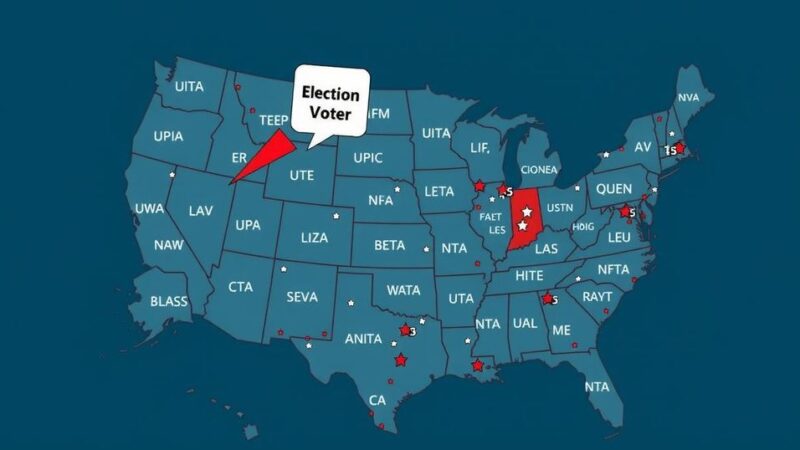Haitian migration has become a significant political issue as the 2024 elections approach, largely focused on the influx of migrants impacting towns like Springfield, Ohio. Recent decisions by the Biden administration not to extend parole statuses for migrants from Haiti have heightened concerns among politicians and communities about the implications for legal status and social services. As the number of Haitian immigrants in the U.S. surpasses 1.15 million, the situation remains contentious amid claims of social unrest and demands for immigration reform.
The recent surge of Haitian migrants entering the United States has emerged as a significant political topic, particularly in light of the upcoming 2024 elections. Prominent political figures, including former President Donald Trump and Senator J.D. Vance, have highlighted the effects of this influx on communities such as Springfield, Ohio. The Biden administration’s policies, particularly the parole processes for migrants from Cuba, Haiti, Nicaragua, and Venezuela, have drawn considerable scrutiny. Under these policies, individuals are permitted to enter the U.S. and receive a two-year parole with work authorization. Furthermore, Temporary Protected Status (TPS) was reestablished for Haiti this summer, offering some migrants additional protections against deportation. However, the administration has recently decided not to extend these parole durations, compelling migrants to either seek alternative immigration statuses or depart the country. This development has intensified discussions surrounding migration policies, particularly as Trump has made controversial claims regarding the lifestyle impacts of these migrants in Ohio, allegations that have been officially disputed. Senator Vance, for his part, has expressed a belief that those entering under the parole programs should not be classified as legal immigrants, challenging the legitimacy of the administration’s measures. As of the latest estimates, there are over 1.15 million Haitian immigrants residing in the U.S., a significant increase from the previous year, with Florida housing the largest population. The Biden administration’s initiatives, particularly the expansion of the Central American Minors program to include Haitians, have facilitated the entry of approximately 214,000 Haitians into the U.S. between January 2023 and August 2023. While the administration has renewed TPS for Haitians until February 2026, eligibility requires individuals to have been present in the U.S. since June 3, 2023. All of these developments occur in the context of ongoing humanitarian crises in Haiti, which DHS acknowledges result in urgent needs for protection from deportation due to prevailing violence and instability in the region. The decision to revoke parole status has raised fears among conservative factions about the possible consequences on the demographic of Haitian migrants in the U.S. should they remain after their status expiration.
Haitian migration into the United States has gained heightened attention, influenced by both policies set forth by the Biden administration and political narratives surrounding the impact of migrants in various communities. The administration’s efforts to provide a pathway for migrants through parole systems and Temporary Protected Status (TPS) have been pivotal in shaping the multicultural landscape of the U.S. However, increasing tensions related to immigration policies and the upcoming election have transformed this issue into a significant political battleground. Migrants from Haiti face dire circumstances related to violence and instability in their homeland, which has historically led to their migration to the U.S. The presence of Haitian immigrants is particularly pronounced in Florida, illustrating their substantial contribution to the nation’s diversity and workforce. Amidst these challenges, the legal status of many migrants hinges on the administration’s evolving policies and the political discourse surrounding immigration.
The rising number of Haitian migrants in the United States presents a complex intersection of immigration policy, humanitarian needs, and political strategy. As the Biden administration grapples with the consequences of its decision to revoke parole status, concerns about the ramifications on social services and community integration remain prominent, especially leading into the 2024 elections. Key figures in politics have capitalized on this issue, suggesting it may significantly influence voter sentiment and the broader discourse on immigration. The ongoing situation in Haiti underscores the need for sensitive and effective immigration policies that address both national security considerations and humanitarian crises.
Original Source: www.foxnews.com






